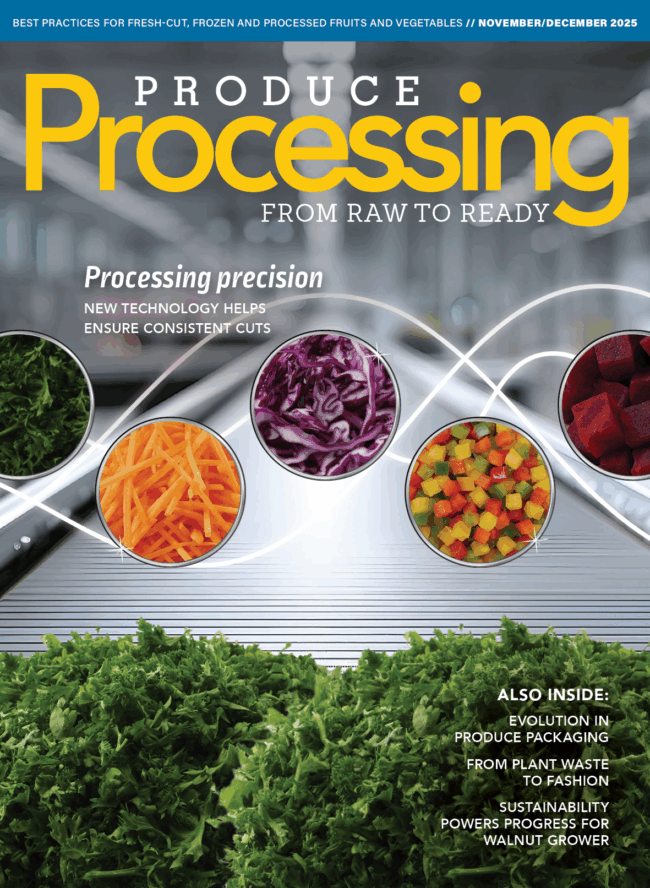Does listeria develop resistance to sanitizers?
With little data on whether Listeria monocytogenes develops tolerance to commonly used sanitizers, debates continue on whether or how frequently processing facilities should rotate sanitizing agents.
Xiangyu Deng, Ph.D., with the University of Georgia, said he hoped his research project will fill in knowledge gaps to help the industry make more informed decisions about the need for chemical rotation. Ultimately, the results may lead to development of a genetics-based tool to assess the risk of Lm developing sanitizer tolerance.
Currently, the Food and Drug Administration and the U.S. Department of Agriculture Food Safety and Inspection Service recommend rotating sanitizers in fresh-cut processing facilities to minimize the chances of pathogens — and particularly Lm — developing tolerance.

“I think those recommendations, because there’s not much data on the specifics of sanitizer tolerance in listeria, are made out of an abundance of caution,” Deng said. But he has not heard of any confirmed case where the pathogen developed tolerance to commonly used sanitizers in produce processing facilities.
Even if the pathogen does develop tolerance through sublethal exposure to sanitizers, little data exists to predict how long tolerance will last before reverting to susceptibility, he said.
Joining Deng as co-principal investigator is Henk C. den Bakker, Ph.D., and also with the University of Georgia.
The project, titled, “Possibility, duration and molecular predictors of sanitizer tolerance in Listeria monocytogenes,” is examining the potential for resistance to chlorine and quaternary ammonium compounds (quats).
Acquired resistance occurs when an organism is exposed to sublethal doses of a control agent. Those that survive phenotypically display, but don’t genetically acquire, elevated tolerance to the agent.
Conversely, if products are rotated and the tolerant organisms are no longer exposed to the original chemical, the population is unlikely to maintain the tolerance indefinitely. How long it takes for this return to susceptibility is one question Deng hopes to shed more light on.
But Deng said the high percentage is not necessarily cause for concern.
“It doesn’t necessarily mean reduced efficacy because the concentration of commercial sanitizer should be enough to kill even the ones with resistance genes,” he said.
Using a set of 359 isolates obtained from the FDA and Purdue University that covered a wide spectrum of sanitizer tolerance, the researchers also developed a high-throughput method to measure the minimum amount of chemical needed to inhibit the organism. Of those isolates, 126 originated from 22 produce commodities, 232 were from packinghouses and retailers, and one was a clinical sample.
The isolate collection and this method will be used to identify genetic markers that can predict sanitizer tolerance.
As part of the project’s second year, the researchers plan to evaluate how different sanitizer levels and lengths of exposure affect the degree and duration of acquired tolerance in selected Lm strains. They also plan to characterize the transcriptomic shifts that accompany the reversion to sensitivity.
In addition, Deng is collaborating with two produce processing companies — one in Texas and another with multiple locations in the United States. Although he would have liked to have visited at least some of the facilities during the fall season, his travel plans were delayed because of the ongoing COVID-19 pandemic.
But Deng still plans to visit the processors to collect samples to determine residual sanitizer concentrations between sanitizing shifts.
“I think it’s very important if we want to relate our findings to real-world situations,” he said. “We’ve used concentrations in the lab that will induce resistance, but are these concentrations relative to the real world?”










